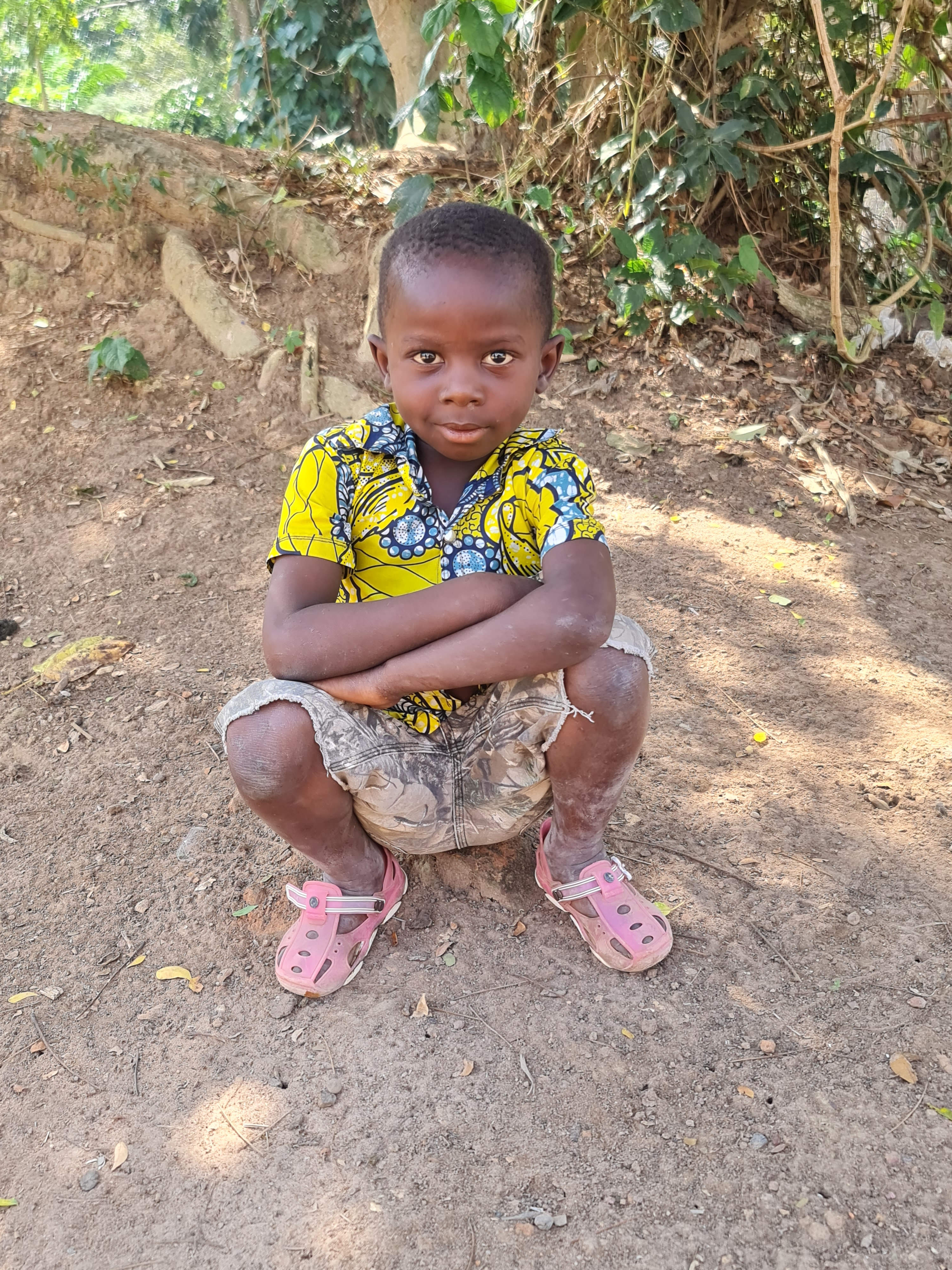

How old are you?
6 years old
What is your favourite subject at school?
Lingala
What is your favourite food to eat?
Fish, sweet potato, maize and meat
How many people in your family?
Two brothers
What job do you want to do when you grow up?
Priest


6 years old
Lingala
Fish, sweet potato, maize and meat
Two brothers
Priest
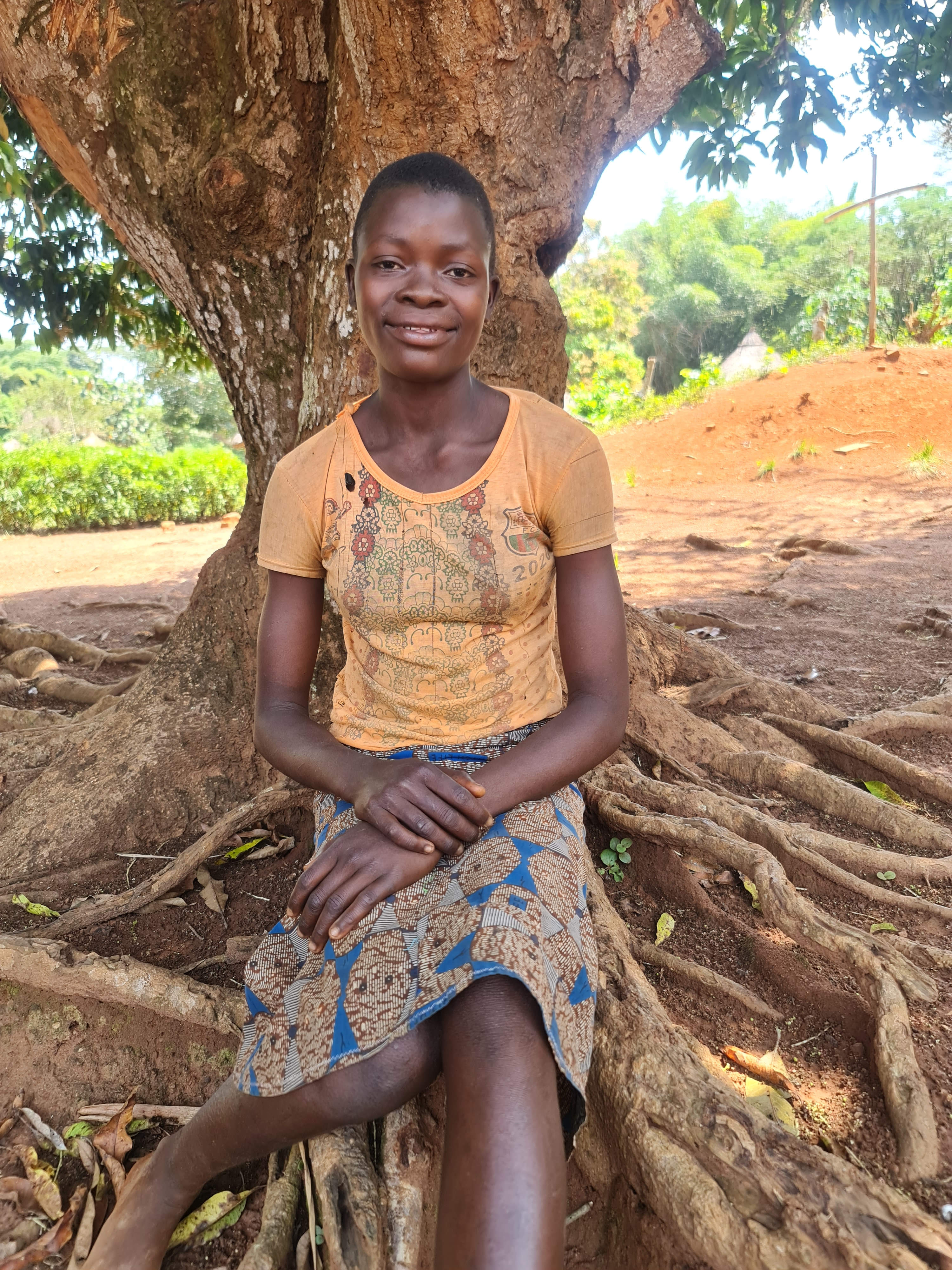
14 years old
French
Fish
Mum, five sisters and 1 brother
Headmistress
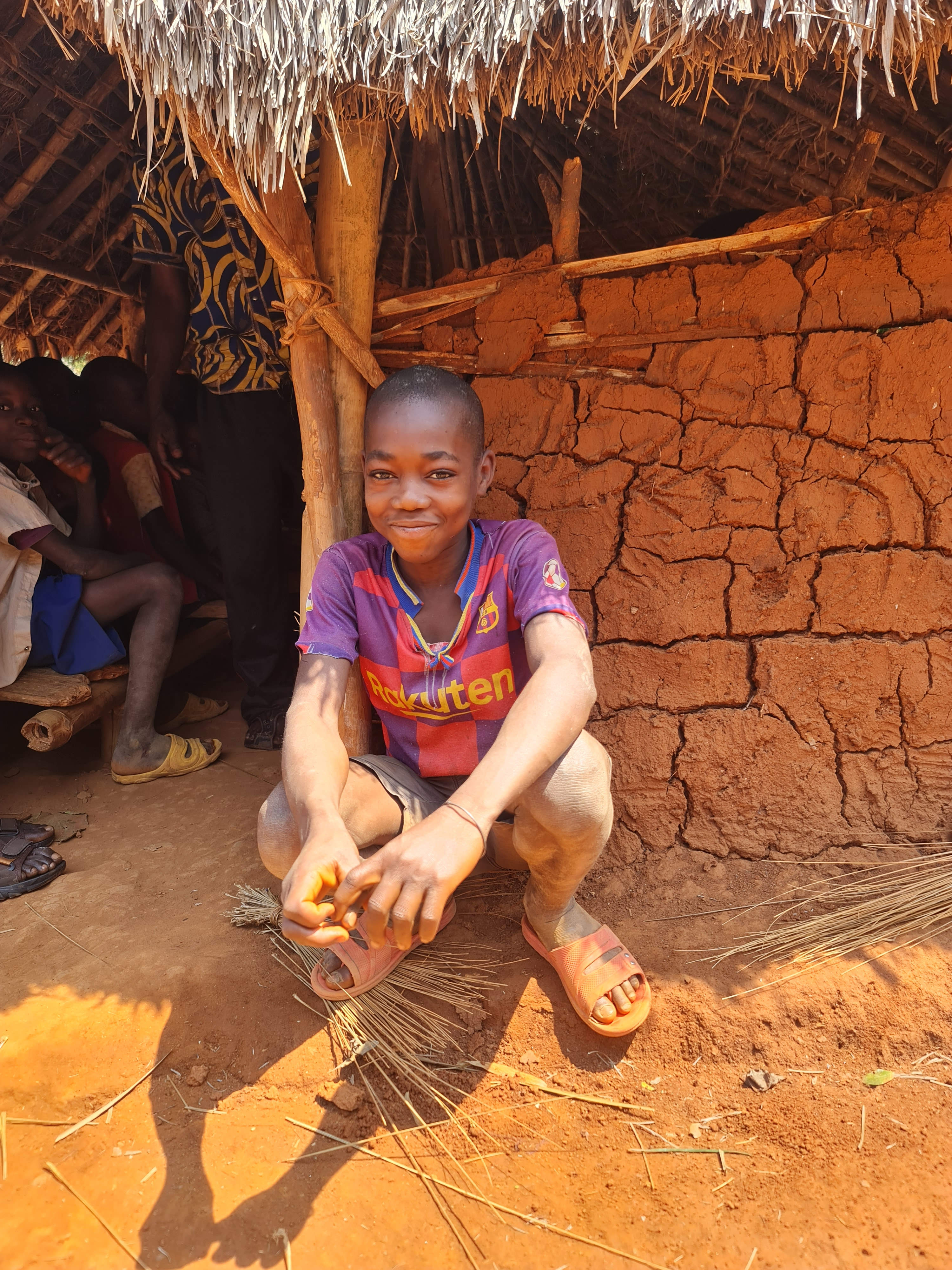
8 years old
History
Cassava
Mum and dad. Three sisters and two brothers
Teacher
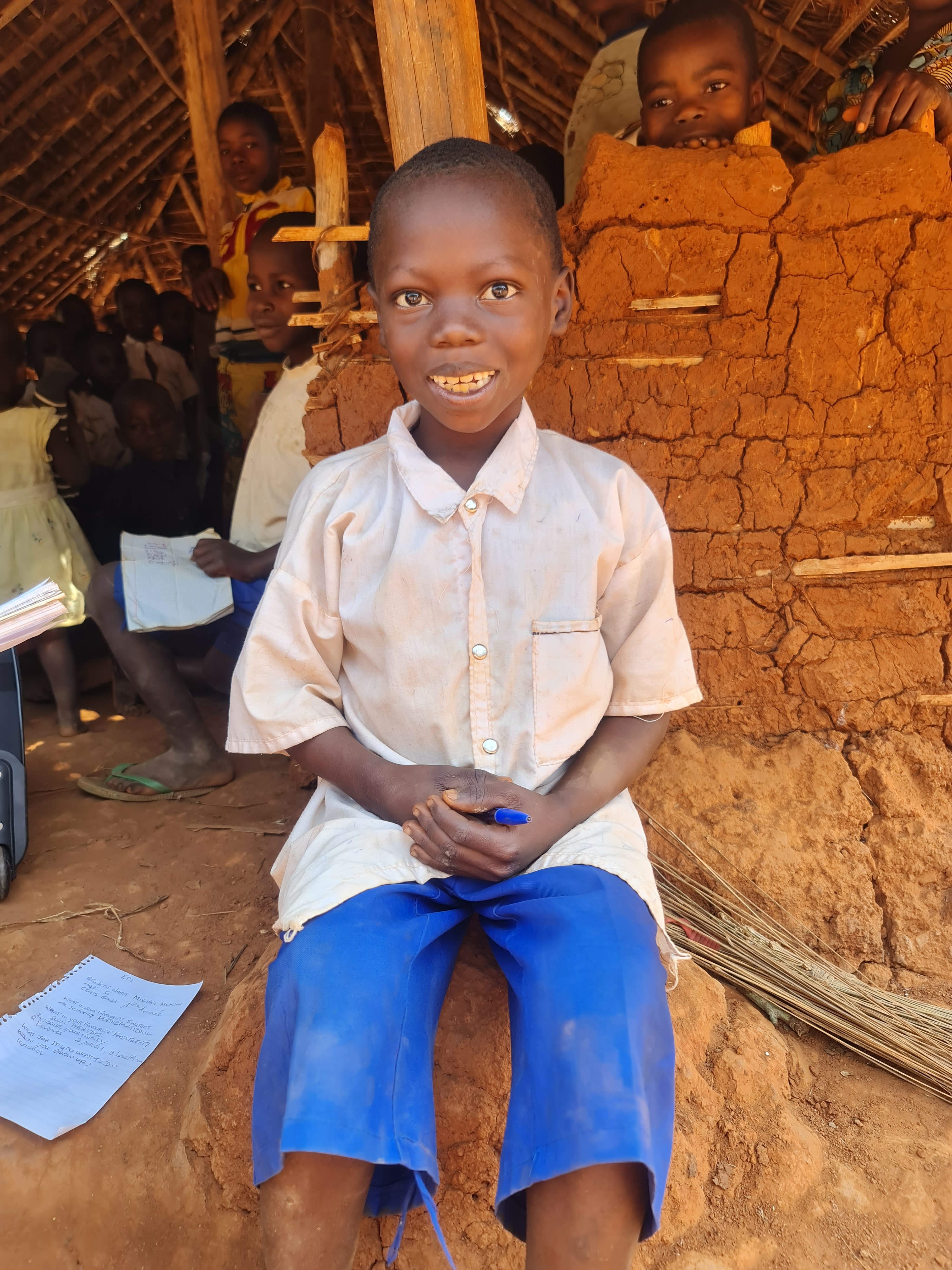
8 years old
French
Cassava Leaves
Mum and dad. Two sisters and two brothers
Headmaster
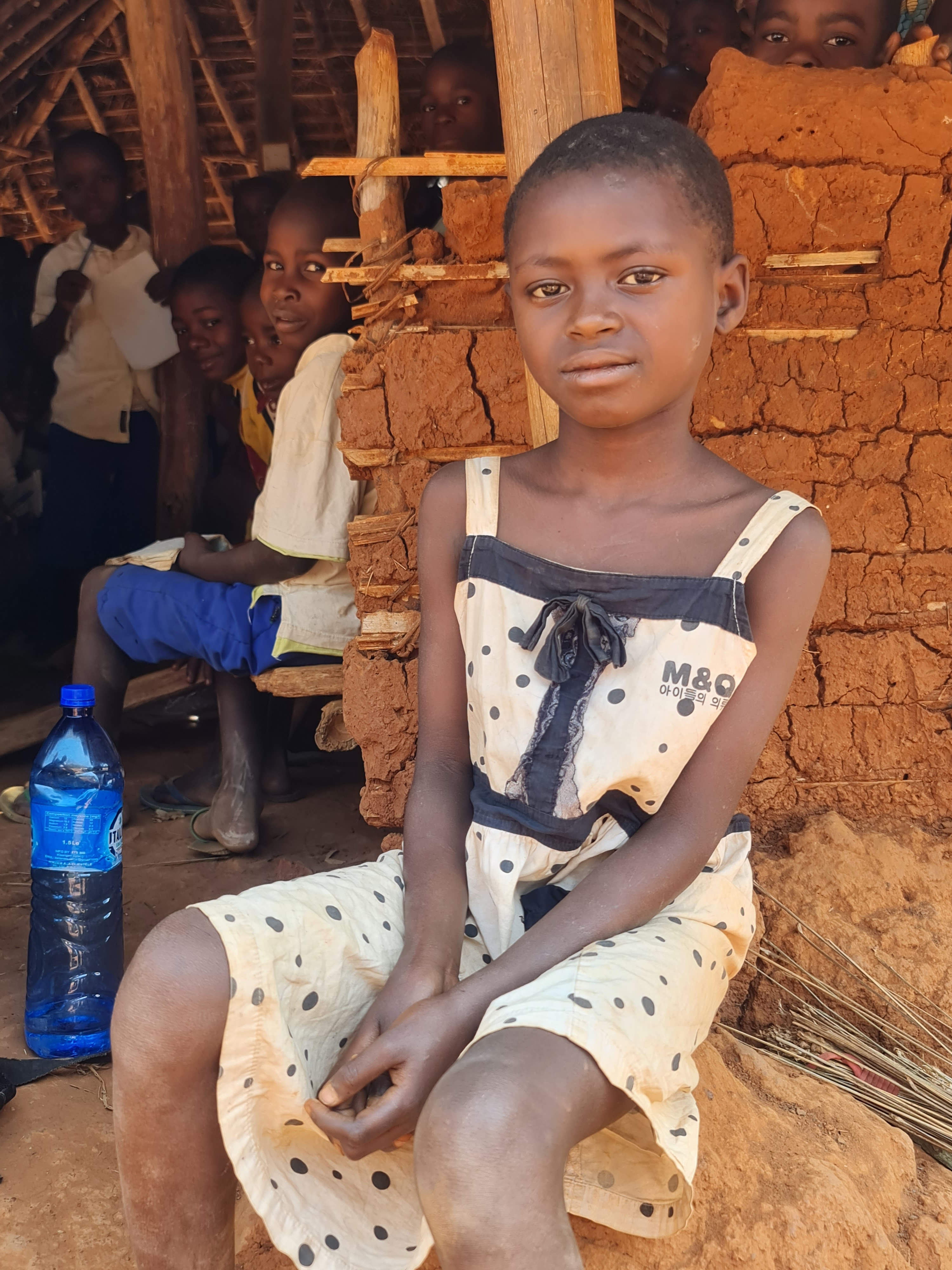
6 years old
Mathematics
Sweet Potatoes
Mum and dad. Two sisters and three brothers
Teacher
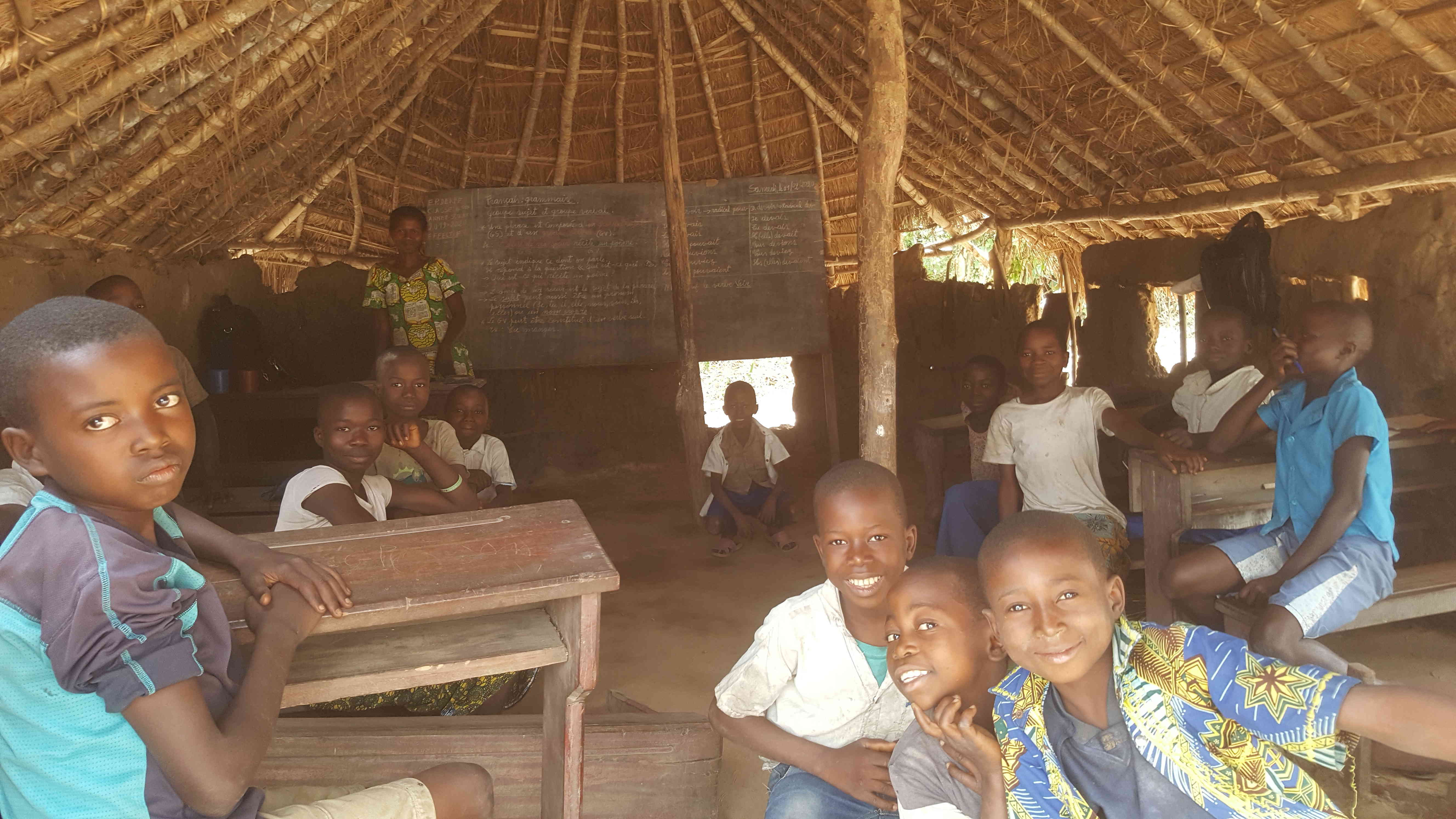
The Dekpe Primary School in the village of Ngilima was closed for about five years due to the occupation of the Lord’s Resistance Army (LRA) in the area, and it was reopened in early 2018
The RainShine Foundation commenced a project in 2021 to replace the 6 grass hut classrooms with a comfortable and safe learning environment made of bricks, hardwood and tin. We planned the construction around raising funds for the 1st building with 3 classrooms, and then at the completion of the 1st school building we will start a follow on project to construct the 2nd school building.

The first stage of the project successfully produced 21,000 bricks manufactered by workers in the local community. These bricks were used in the construction of one school block, which now contains 3 classrooms. Both school blocks on completion will house in total 6 classrooms and accommodate around 300 students.
Here are some photos showing progress of the building during 2022. The walls of the building have been completed and we are now ready to raise the roof onto the building.
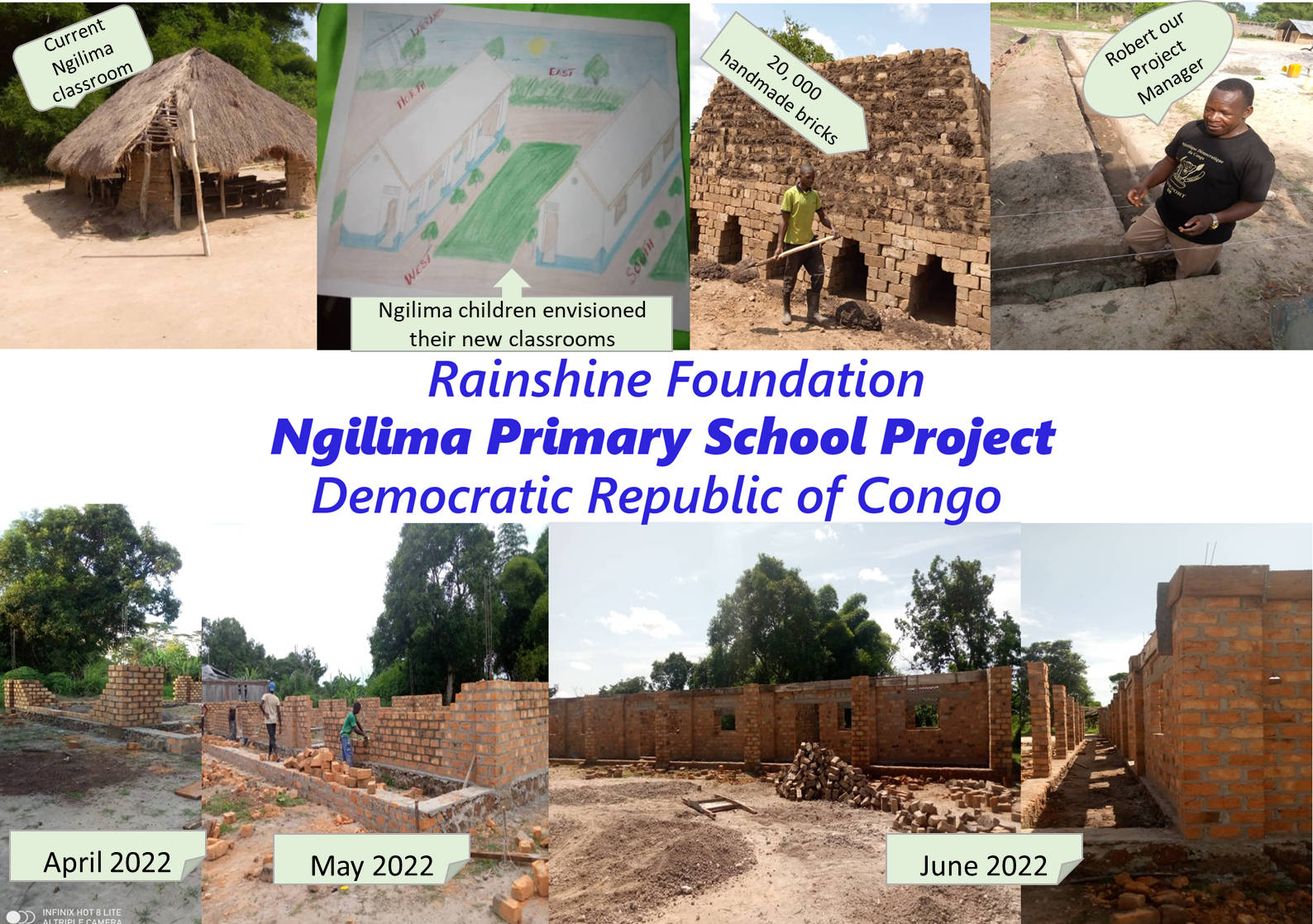
Here are some photos showing progress that has been made since April 2022. In September 2022 at the start of the school year, the 1st of 2 planned school buildings was functional enough to be used by 200 students at Ngilima. RainShine during 2023 – 2024 will continue to finish the ceiling linning, plastering, and cement floors for this building. Here are some pictures of the new school building, which contains 3 classrooms.
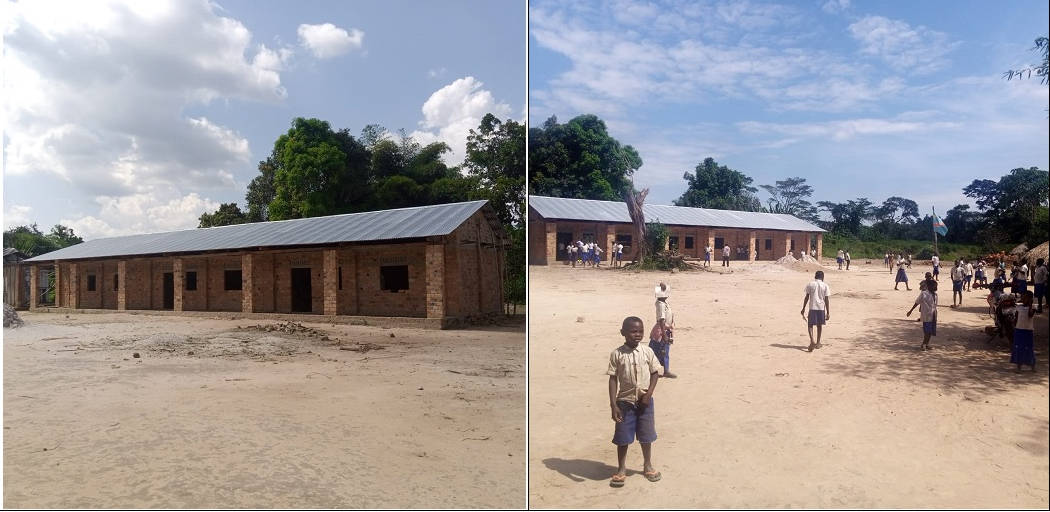
Students are using the new classrooms. I fact we cant keep them out of the classrooms so we can finished the remaining jobs. Also as you can see we need to provide new desks for the 3 classrooms. If you would like to donate to the Ngilima Primary School Desk Program, then you will find a donation page on this website.
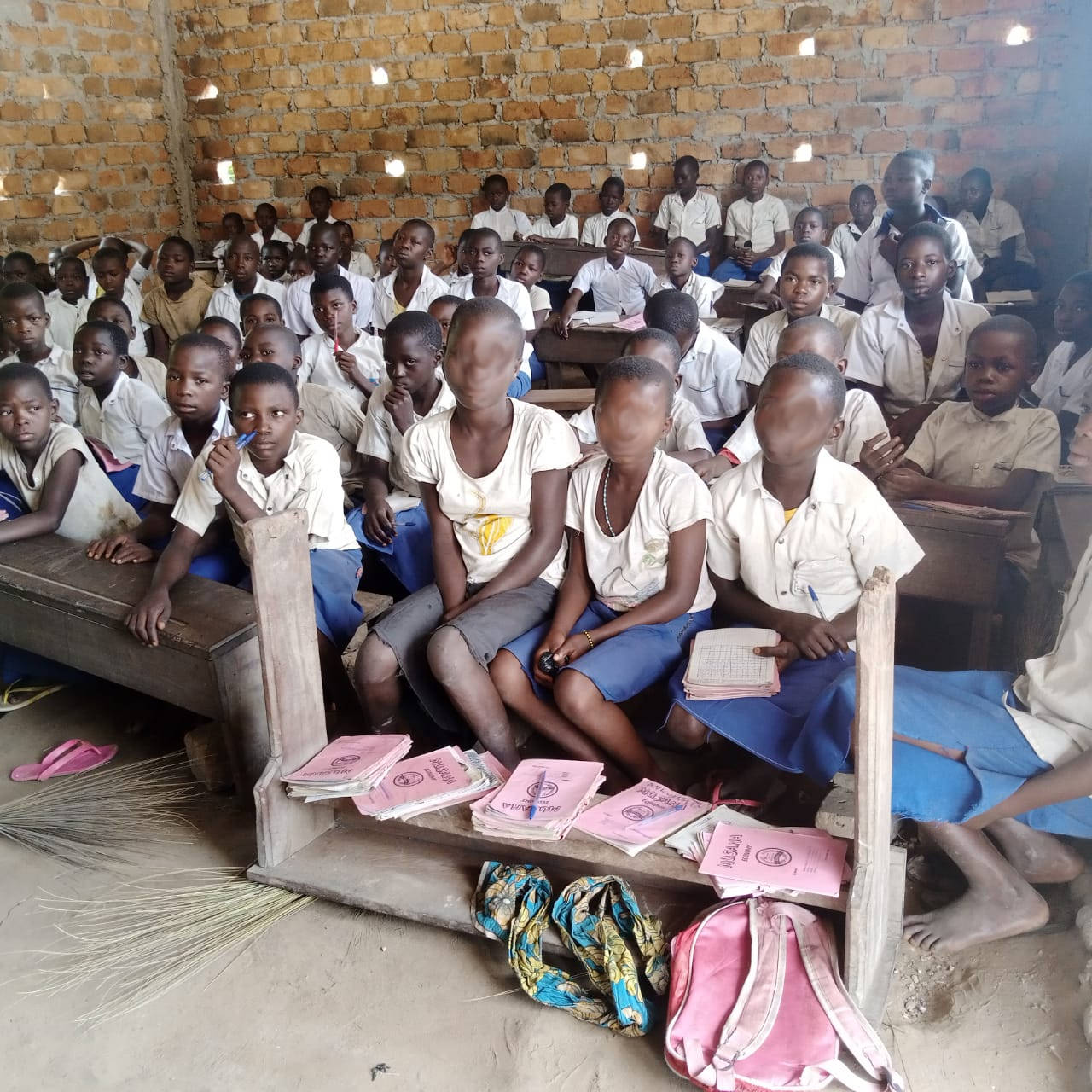
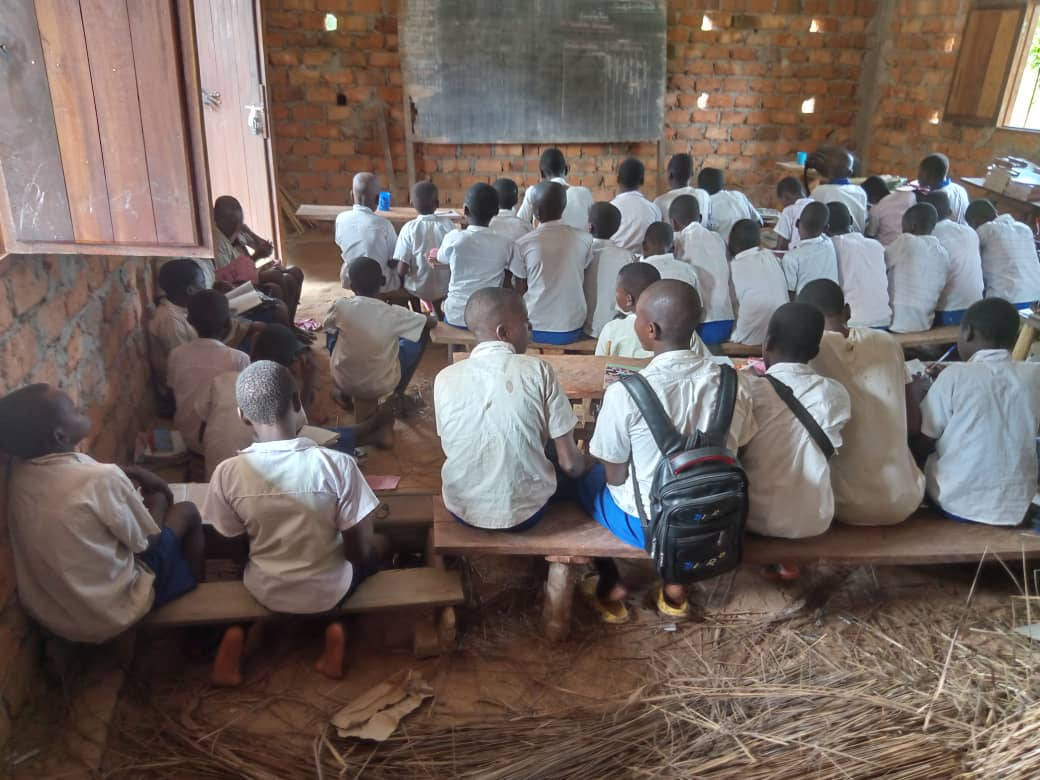
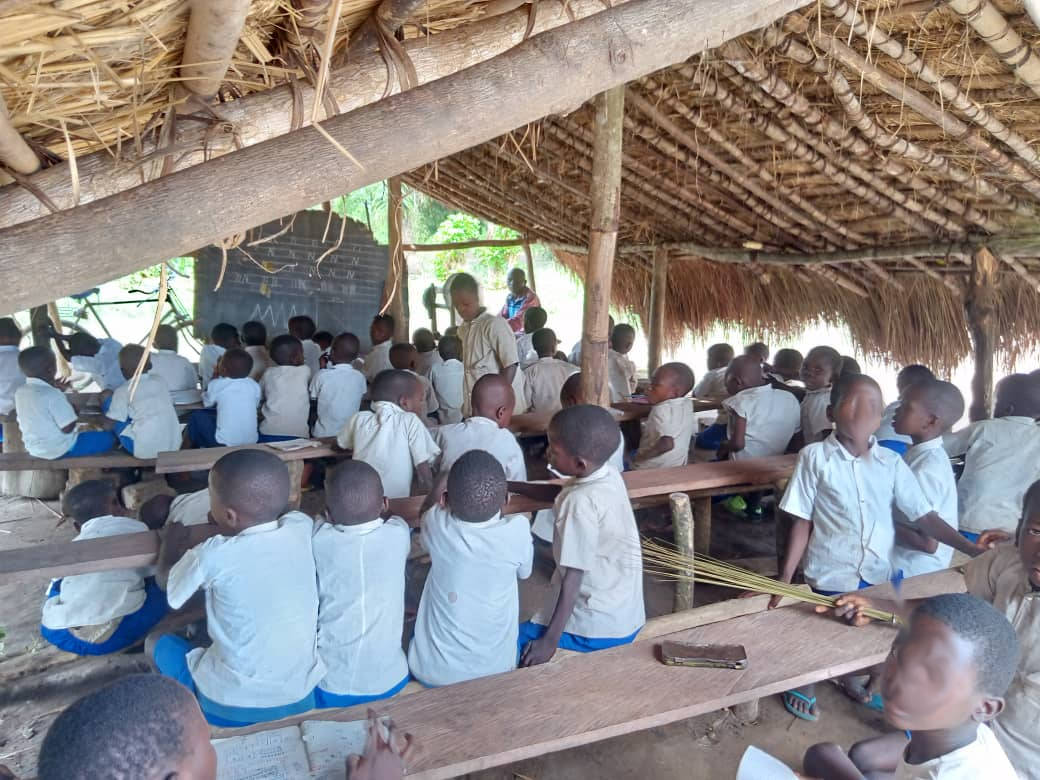
Please donate to the Ngilima 2nd school building project and help our children have a comfortable learning environment for improved educational outcomes at Ngilima primary school by entering your donation below. Our plan is to build a 2nd school building with 3 classrooms because we still have another 200 students who cannot fit into the new school building and so they are still taking lessons in grass huts – see photo above. To do this we need to raise approximately $25, 000 USD (or conversion to AUD $39,000.
For Australian residents your donation of $2 and over is tax deductable. This is what your contribution will give towards building the Ngilima primary school in durable materials. All amounts are in AUD.
Or click here to make it a monthly donation
RainShine Australia uses Stripe a secure payment system. For more information: https://www.stripe.com/
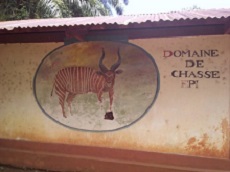
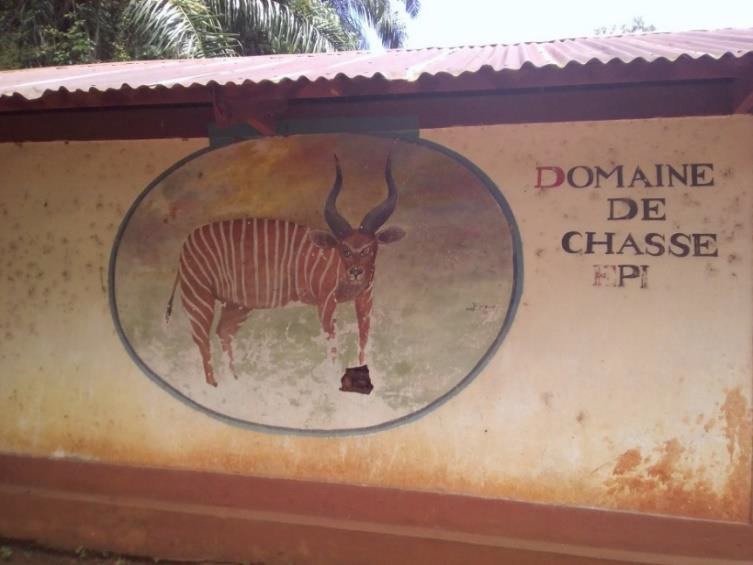
What does a conservation program have to do with improving access to education? Programs that focus on preserving endangered species, managing forest resources, and protecting wildlife can generate positive economic activity in communities, which in term reduces poverty and improves living conditions. Better management of wildlife and forest resources also supports sustainable land-use planning. The flow on effect is a stronger economy and the development of future resource security in communities.
The objective of this program in collaboration with DRCongo partners is to reclassify the Epi forest (which was a Hunting Reserve 20 years ago) into multi-faceted areas to support, for example, community foresty, a protected area for the passage of large migrating animals, and zones to manageTranshumance Pastoralism.
Currently the Epi forest is identified as a hunting reserve and is accessed by local communities in Kembisa Sector, which includes Epi, Mamili and Amadi. It also borders on the sector of Abarambo and the Madi and Mabanga chiefdoms. The reserve is approximately 9,000 Km2. Around 30 years ago trophy hunting was conducted in this reserve for a number of years by two local entrepreneurs running a Safari company Uéré-Safari, which brought international hunters to the area to specifically hunt the rare Bongo Antelope.
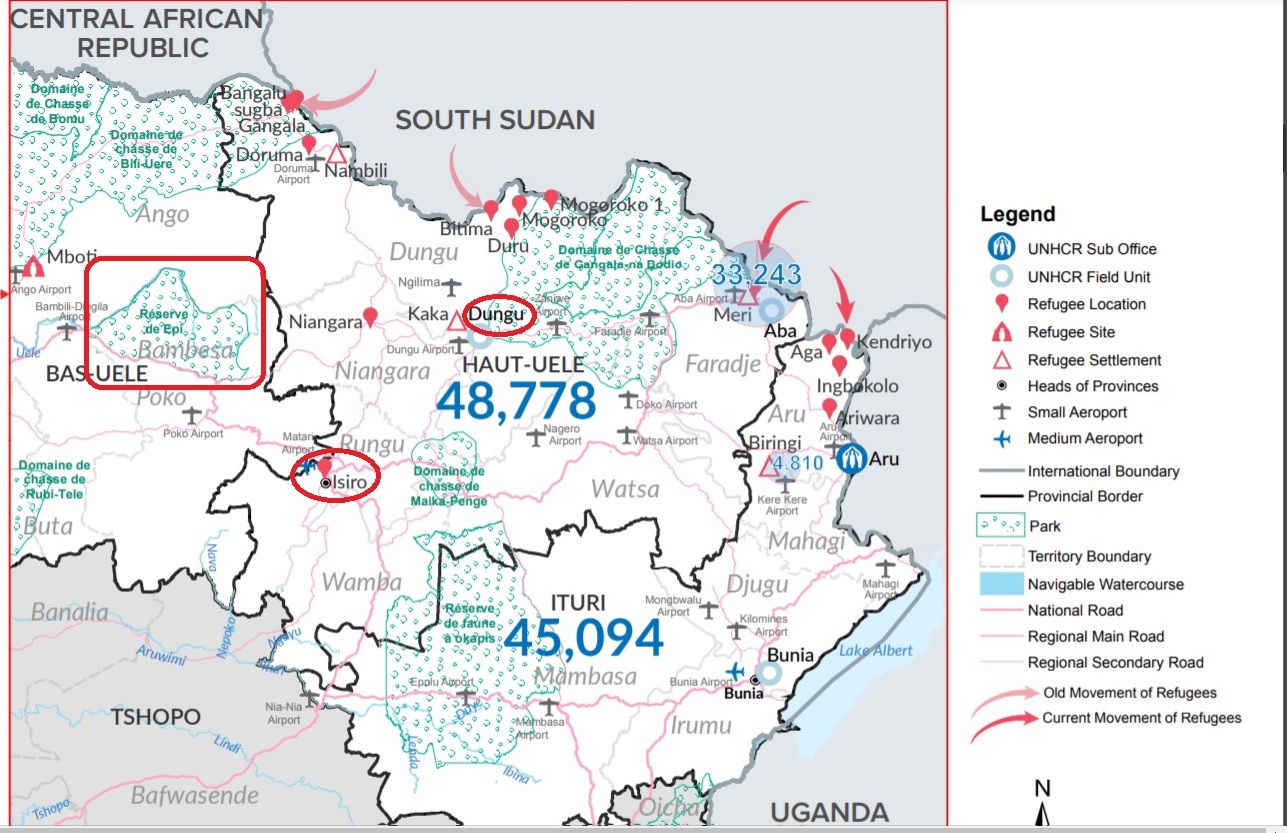
The Epi Reserve has been abandoned for approximately 15 years and during this period we know the area is threatened by:
In addition the Epi Reserve is strategically placed between two other reserves Bili-Uéré to the north and Rubi-Tele to the south, which provides a corridor to support large animals to pass from north to south.
To launch this program a historic meeting was held on August 24/25 2020 between the local Chiefs and leaders of the area, his Excellency the Provincial Minister of the Environment, Nature Conservation and Sustainable Development of Bas-Uélé, Mr Floribert INGA BEBU; Principle of the l’Institut Congolais pour la Conservation de la Nature (ICCN) and Chief Curator Bili- Uéré Reserve, Mr Romain DYANDOGHERE; Administrator of Poko Terrority, Mr Kambili SEBE Jr; and DRCongo RainShine Administrator, Abbé Jean de dieu MIMBUGBE. The outcome of the meeting was the signing of a Free Informed Act of Consent outling a framework for future co-operation for this program.
We are now seeking to conduct a fauna and flora survey of the Epi forest. While we have a broad scope for the survey, the Red Colobus monkey (Piliocolobus oustaleti) and the Bongo (Forest Antelope – Tragelaphus eurycerus) are special targets for the survey. Both animals are iconic to the Kembisa area and they are both on the IUCN Red List of Threatened Species.
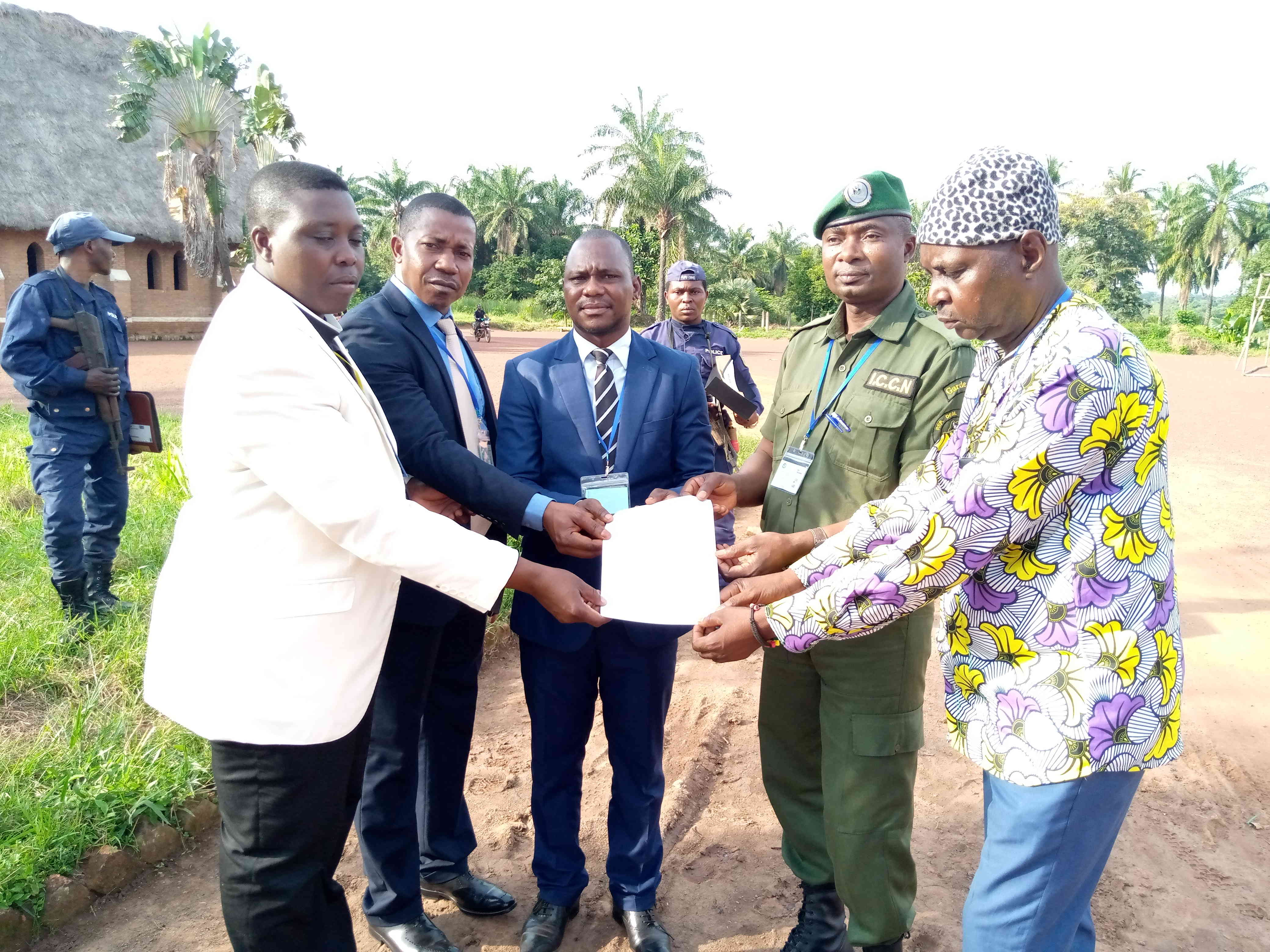
Data from the survey will be used to guide our programs and projects and to provide information to the Bas-Uele Provincial Government so that we can work together to establish the conservation program and to implement strategies to manage the threats to the Epi forest.
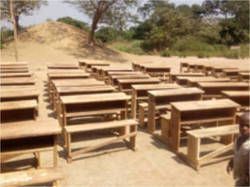
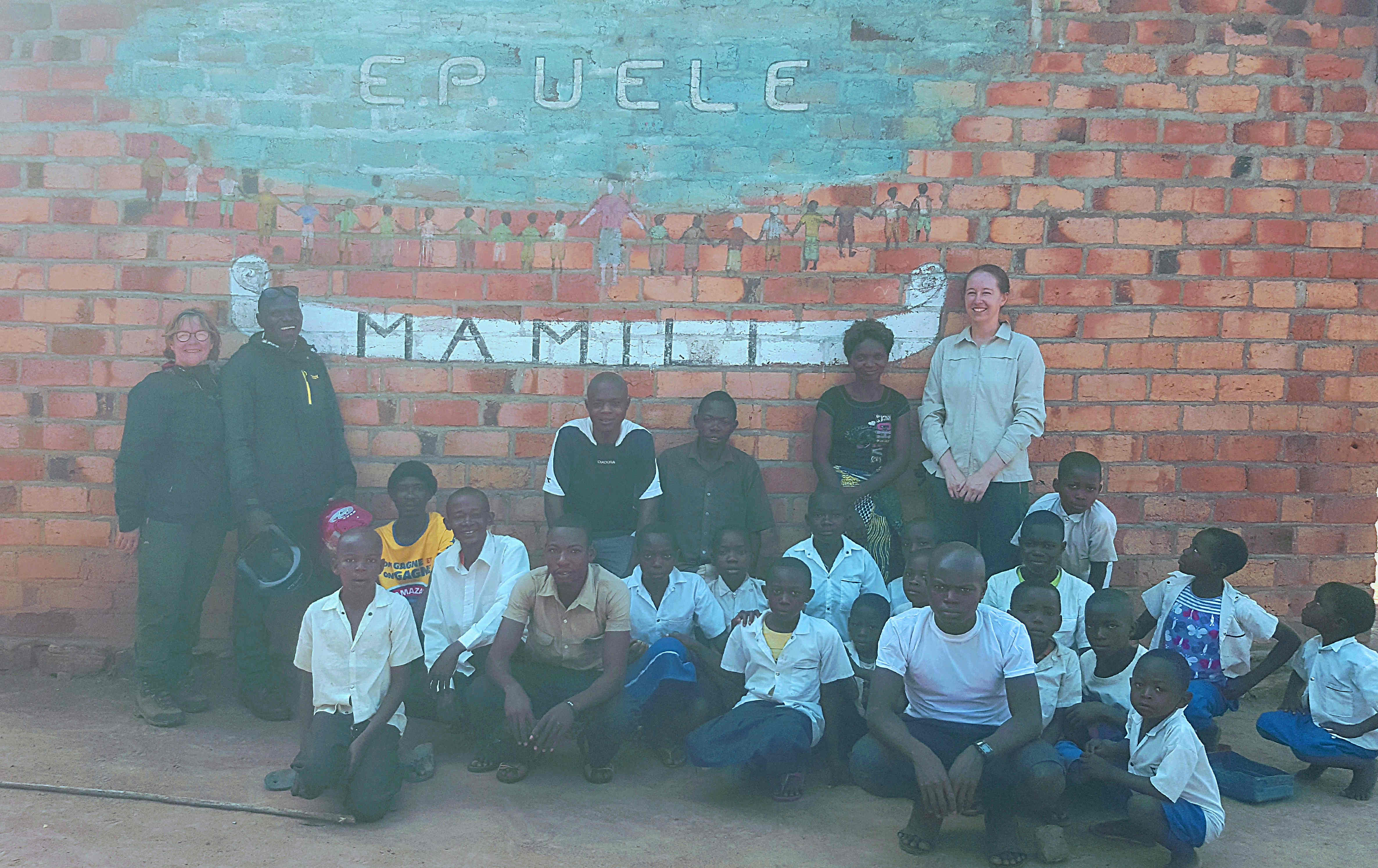
The Memili Primary school in DRCongo was closed for a couple of years prior to 2019 due to lack of funds in the village to support a school. In 2018 RainShine was approached by the Chief of Memili who asked our foundation to help their school to start again. RainShine volunteers visited the Memili primary school in 2020. There are 158 students enrolled at this primary school. Our current involvement with this school is funding teacher’s salaries and school equipment.
On our recent visit to the school we were shocked to find only two almost functional student desk in the six classrooms. The students sit in the dirt to attend class and we sat in the dirt while we met with some of the teachers.
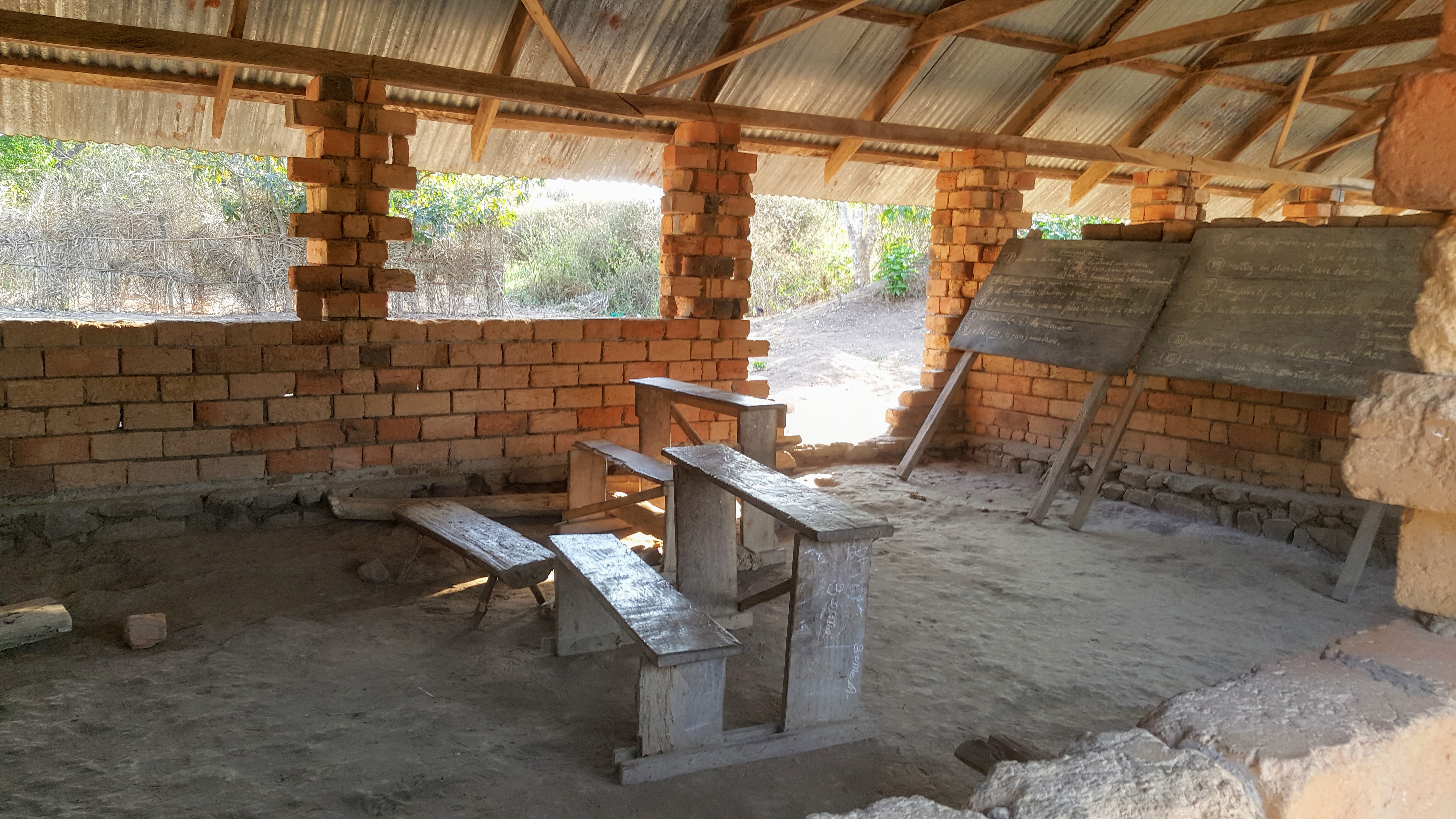
In life there are a lot of things a person can walk away from, but after seeing this we decided to commence the “Desks for Learning” project.
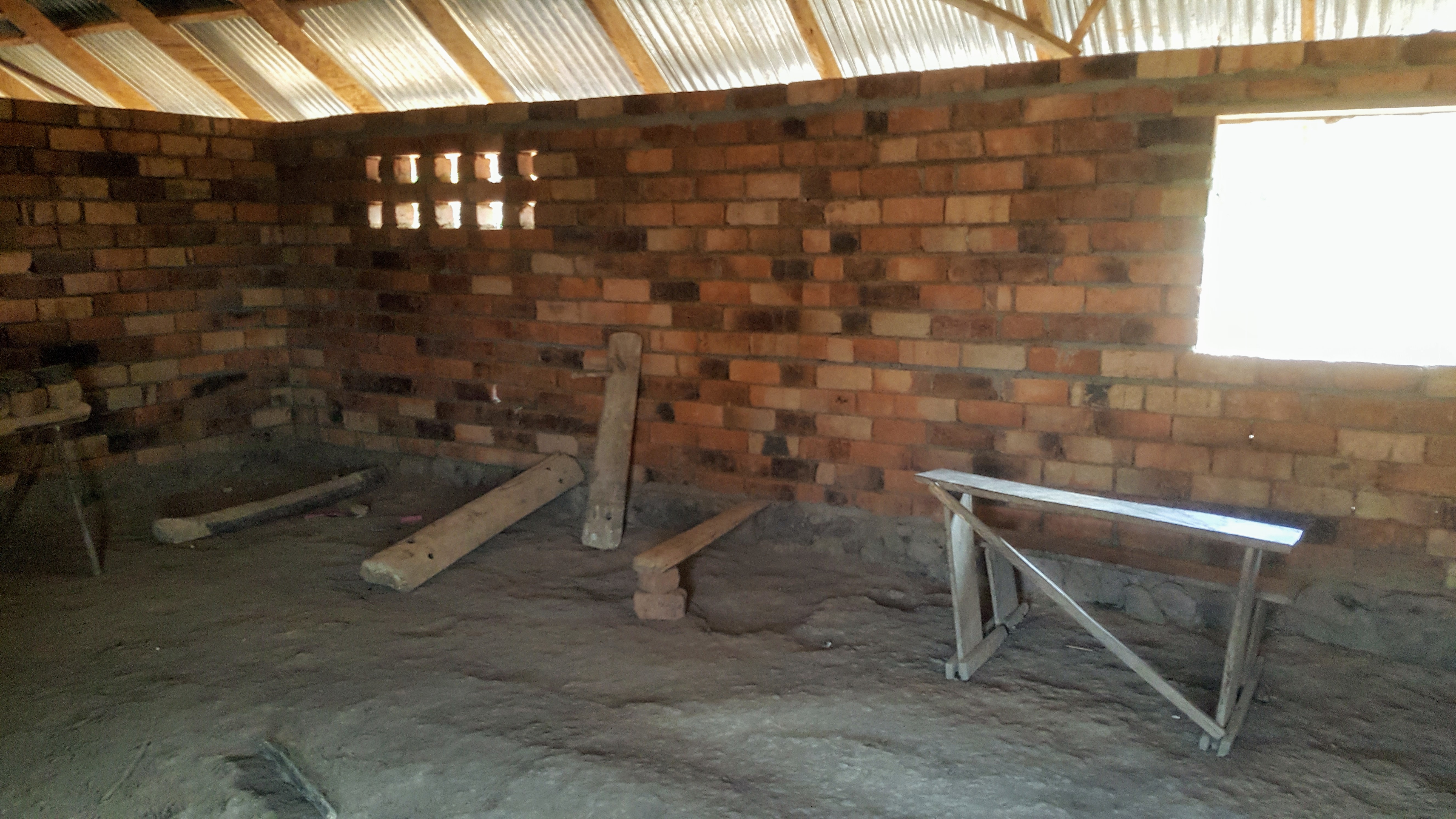
79 hardwood student desks were ordered and built by carpenters at the the local Amadi St Augustine Monastery in DRCongo. 79 desks will sit 2 students per desk – this is a good start.
This project was successfully completed in early 2021 – thank you to all our supporters who donated to this project..
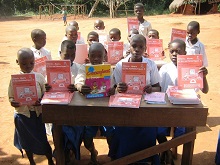
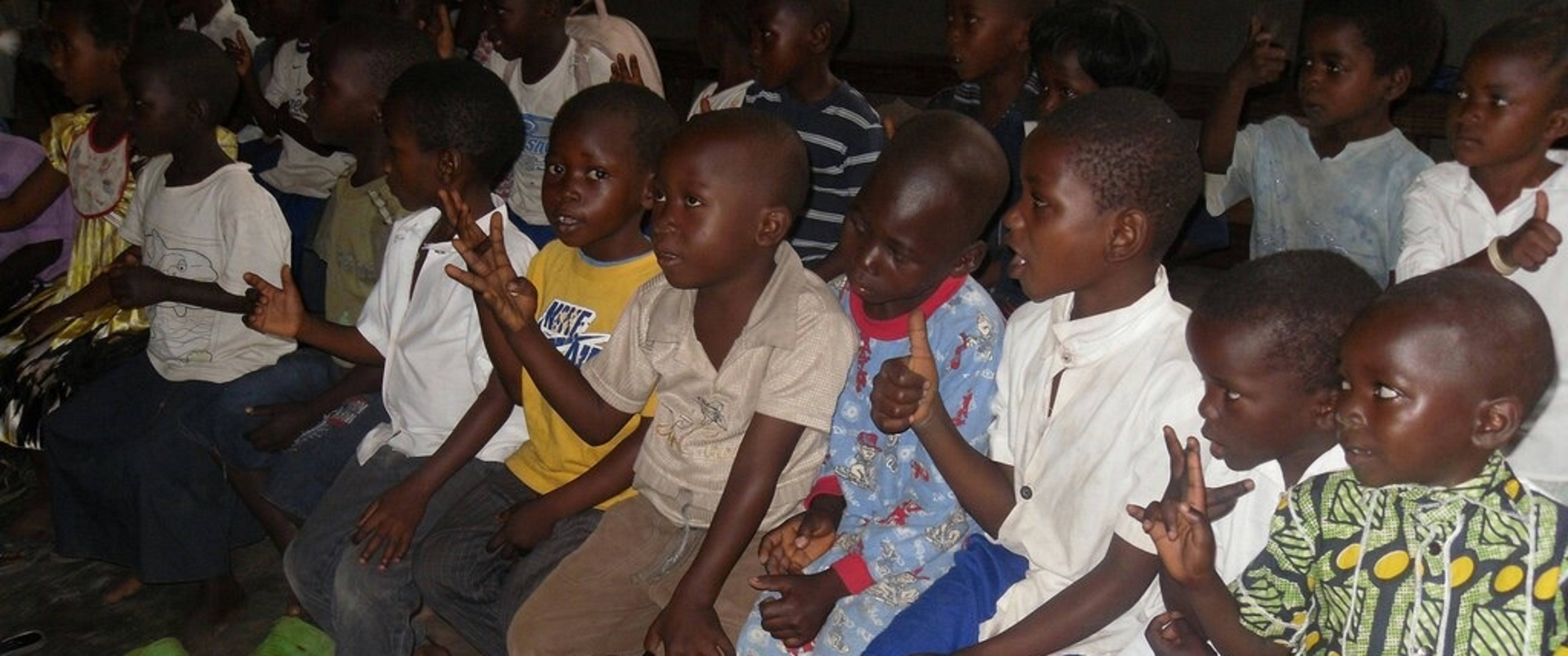
Education teaches us to write, read, think, and achieve. 3.5 million school age children do not attend school in DRCongo. 2.75 million of those children live in rural areas. And 41% of Congolese girls aged 5 -17 years old are working and only 36% of girls are enrolled in High School.
RainShine Australia’s mission is to improve access to primary and secondary school education for children living in rural areas of Democratic Republic of Congo. The majority of Non-Government Organisations operating in DRCongo currently are doing their work in the larger towns and villages, so there is a need for organisations like RainShine to operate and implement projects in remote areas to improve opportunities for education, health and to build future resource security in communities.
In both the Epi and Mamili villages there is no secondary school. Children can travel to Amadi, which is 70 kms away to attend secondary school classes and there is also a secondary school located approximately 400 kms away from Epi in Isiro. However, the majority of families in Epi and Mamili are not be able to afford to send their children to these schools. One of RainShine’s long-term projects is to build a secondary school that can be attended by both Epi and Mamili children.
While we have not achieved the construction of brick, hardwood timber, and tin school builings for the secondary school, in 2023 we registered a secondary school with the DR Congo Government in the Epi village, which has 4 teachers. While it would be nice to have comfortable and secure school buildings, it was decided that providing secondary school education was more important then waiting for funding for a school building. We are eternal optimists and believe that secondary school buildings for these students will follow in the future.
While some of RainShine team members were involved with the Epi Primary school for a number of years prior to 2016, in that year RainShine took over full responsibility for the Epi Primary school. This school is located in a remote part of northern Democratic Republic of Congo. Currently there are 157 children attending the school with one headmaster and six teachers.
In 2018 RainShine started supporting the Primary school in Mamili, which is about 40 kms from Epi. There are 158 children enrolled at this school. The Mamili village is fortunate to have a brick school building to hold classes, however it was closed down for a number of years due to not having enough money in the village to pay teachers. Through donations to RainShine, we now provide teachers salaries and school equipment, and some basic medicines eg Malaria test kits and treatment to the Mamili school.
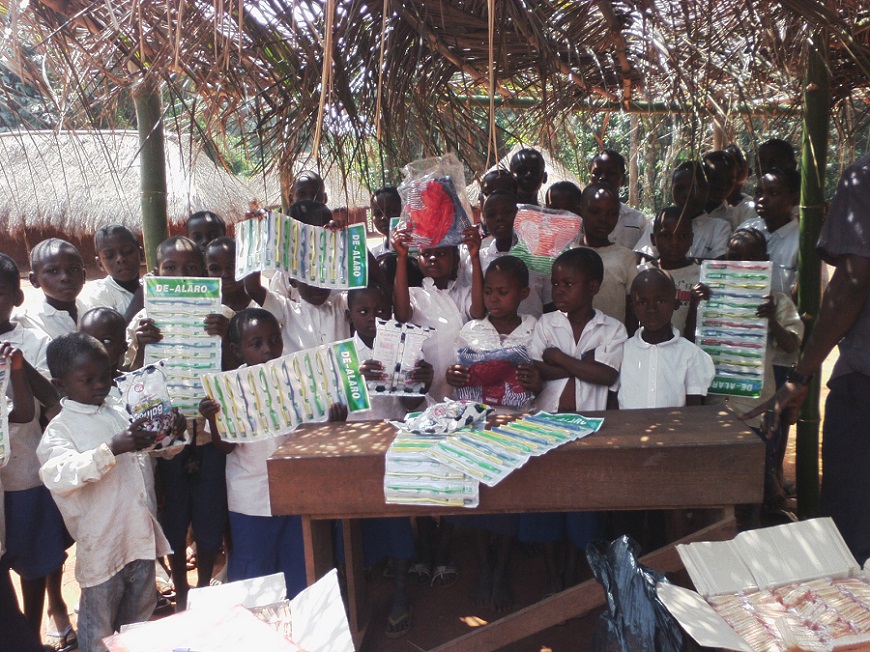
Our annual budget to operate both schools costs $6,600 USD (approximate conversion to AUD $10,000). If you would like to assist this ongoing program then please donate to this specific project below.
While both Epi and Mamili primary schools are private, non-Government schools, RainShine supports our children to sit the Government test each year to determine how they are performing with their education within the province and, we also engage Government Administrators to review our education techniques and school environment to identify improvements.
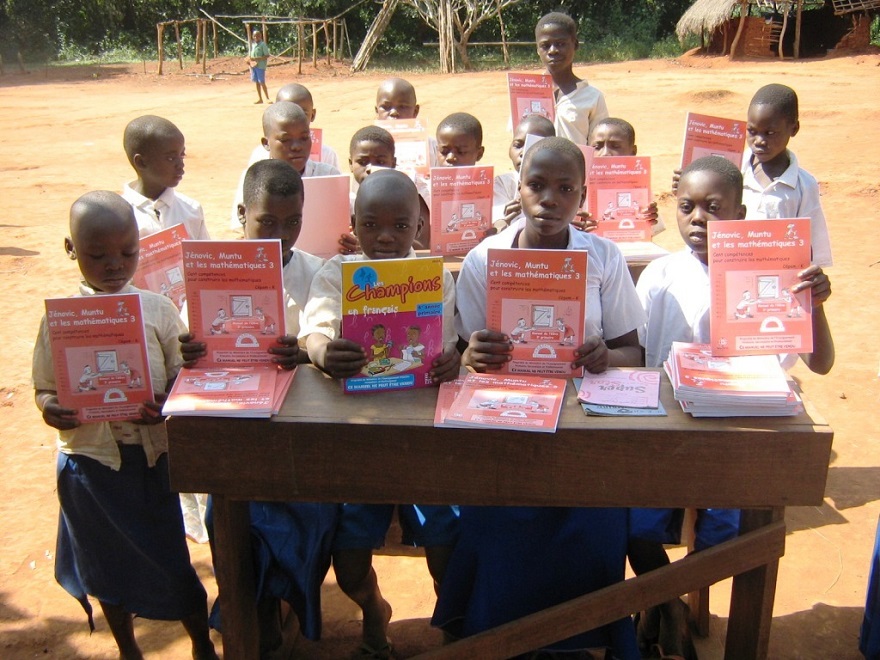
Help our children get access to education and health care. Please enter your contribution below. For Australian residents your donation $2 and over is tax deductable. This is what your contribution will give. All amounts are in AUD.
Or click here to make it a monthly donation
RainShine Australia uses Stripe a secure payment system. For more information:https://www.stripe.com/
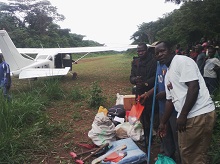
How do we currently travel to the Epi and Mamili primary schools? The answer is by car, plane, and motobike. The last 70 kilometers between Amadi and the schools must be done by motorbike as the roads are very difficult to transverse by a 4 x 4 vehicle for 9 months out of 12 months due to the rains in Africa, and secondly finding a 4 x 4 vehicle in the area of the schools is almost impossible. The local chief of the Epi Village provided land to RainShine to build an airstrip similar to the one currently located at Amadi. This project commenced in January 2022. Local people worked very hard for most of 2022 to clear all of the trees to provide 1,200 x 30 meter airstrip.
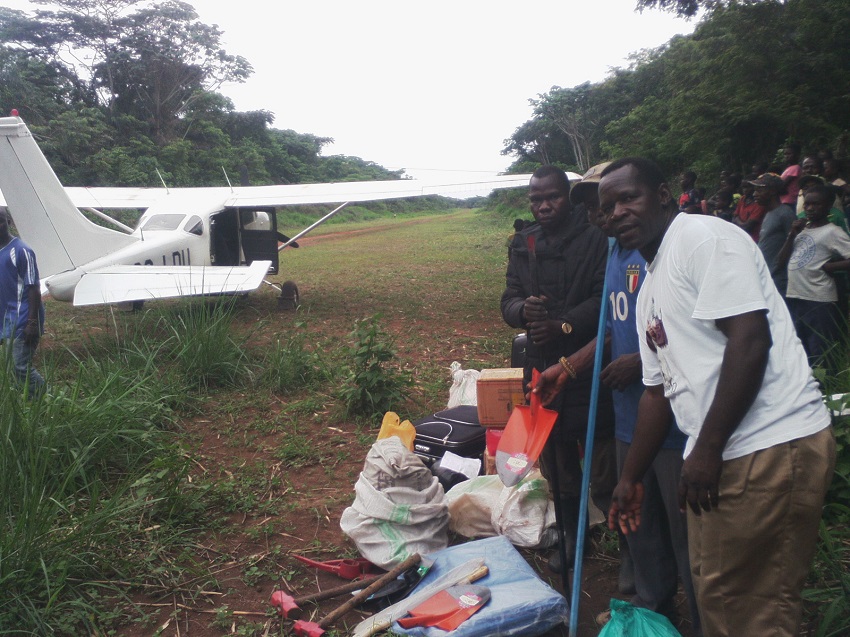
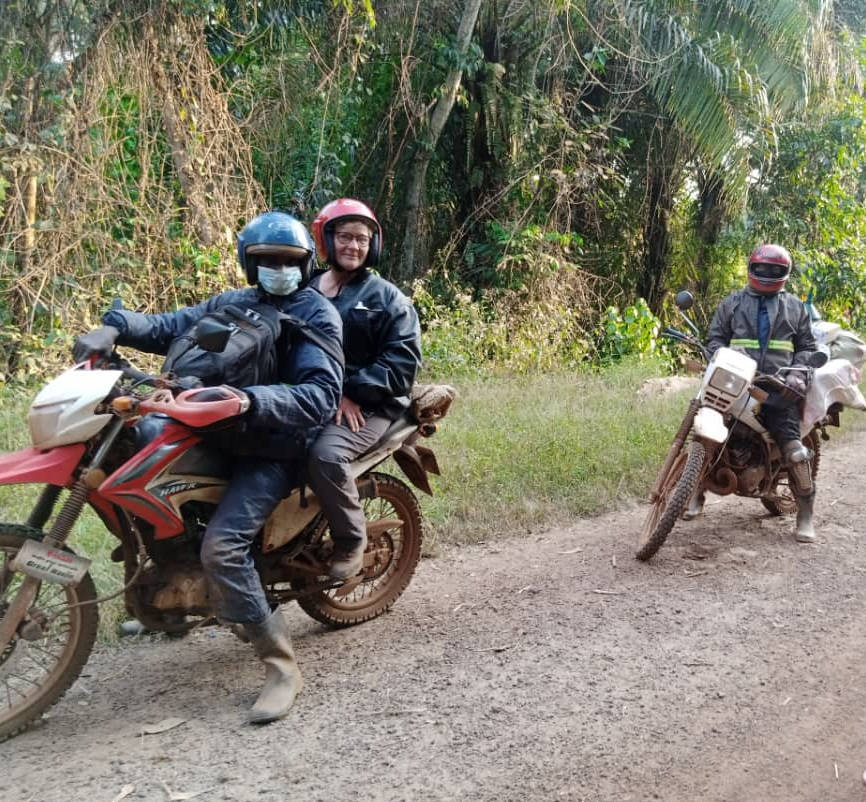

And airstrip will make it easier in many ways. For example, it will reduce the inherient risks to, and effort required for Rainshine volunteers, workers, donors to travel to the Epi village, and it will simplify the transportation of equipment to the Epi village. An airstrip will also make it easier for officials to visit Epi and for these villages to be better equiped to respond to medical emergencies.
In 2020 when RainShine field workers were visiting Epi and Mamili they were involved in a couple of medical emergencies. Good fortune was upon us and our intervenion save two people’s lives. Currenly once you go into Epi and Mamili you need to be healthy enough to get out of these areas to get assistance.
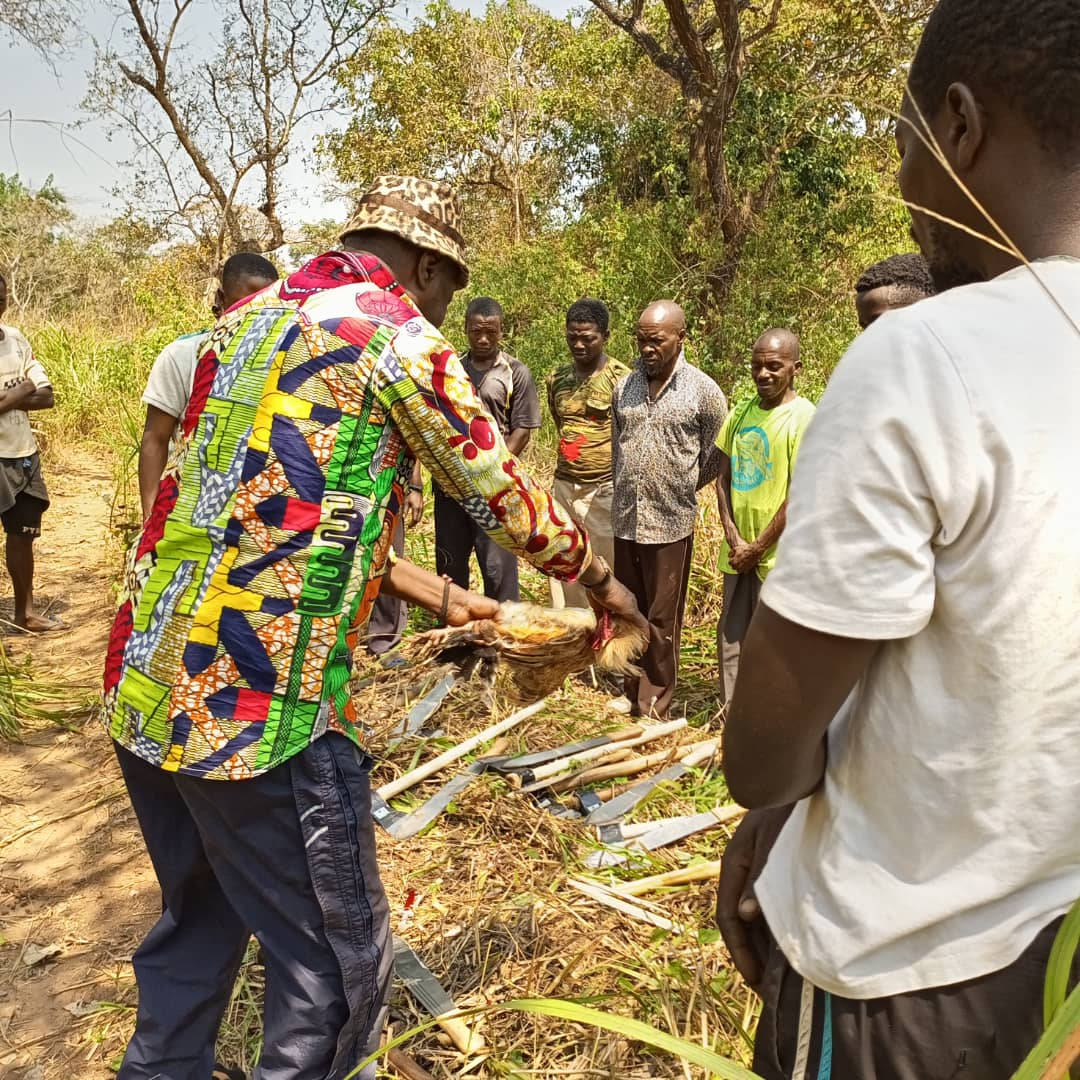
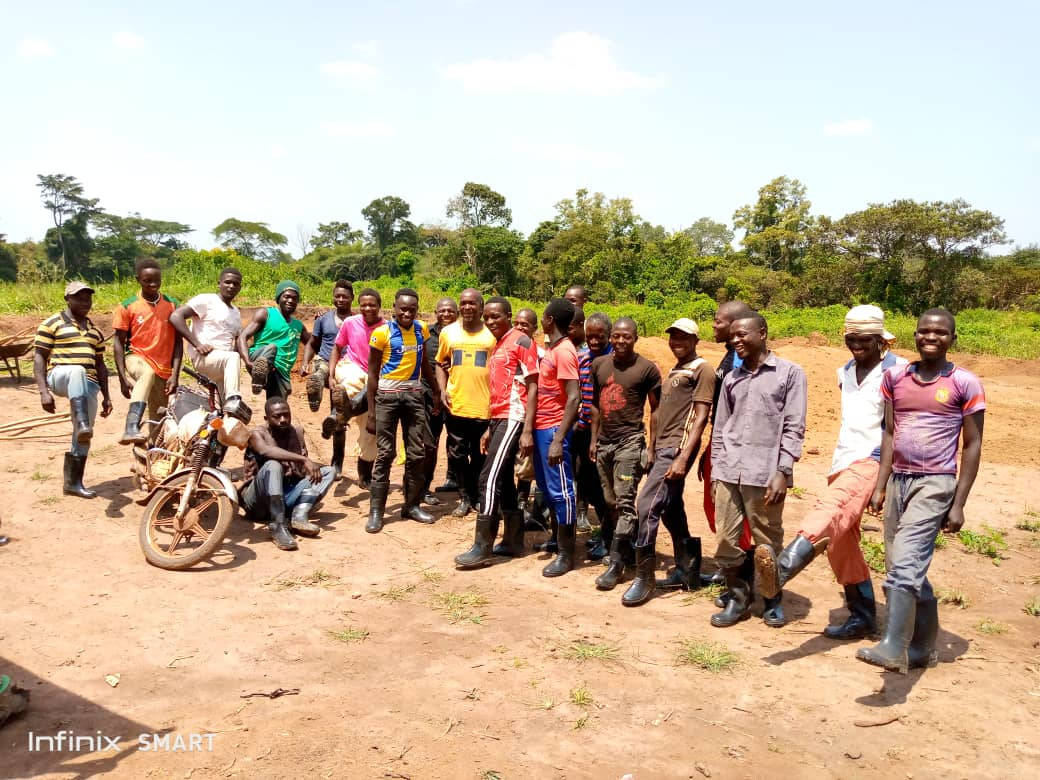
A project launch event was held on the commence of the project in early 2022, which was attended by the area chief and Epi people. The area chosen for the airstrip is about 1 km from the main village and it had many trees, which needed to be cleared. All this work was done manually and was very challenging physically for the people involved. This project was also important to the Epi community as it also provided funds in the local economy.
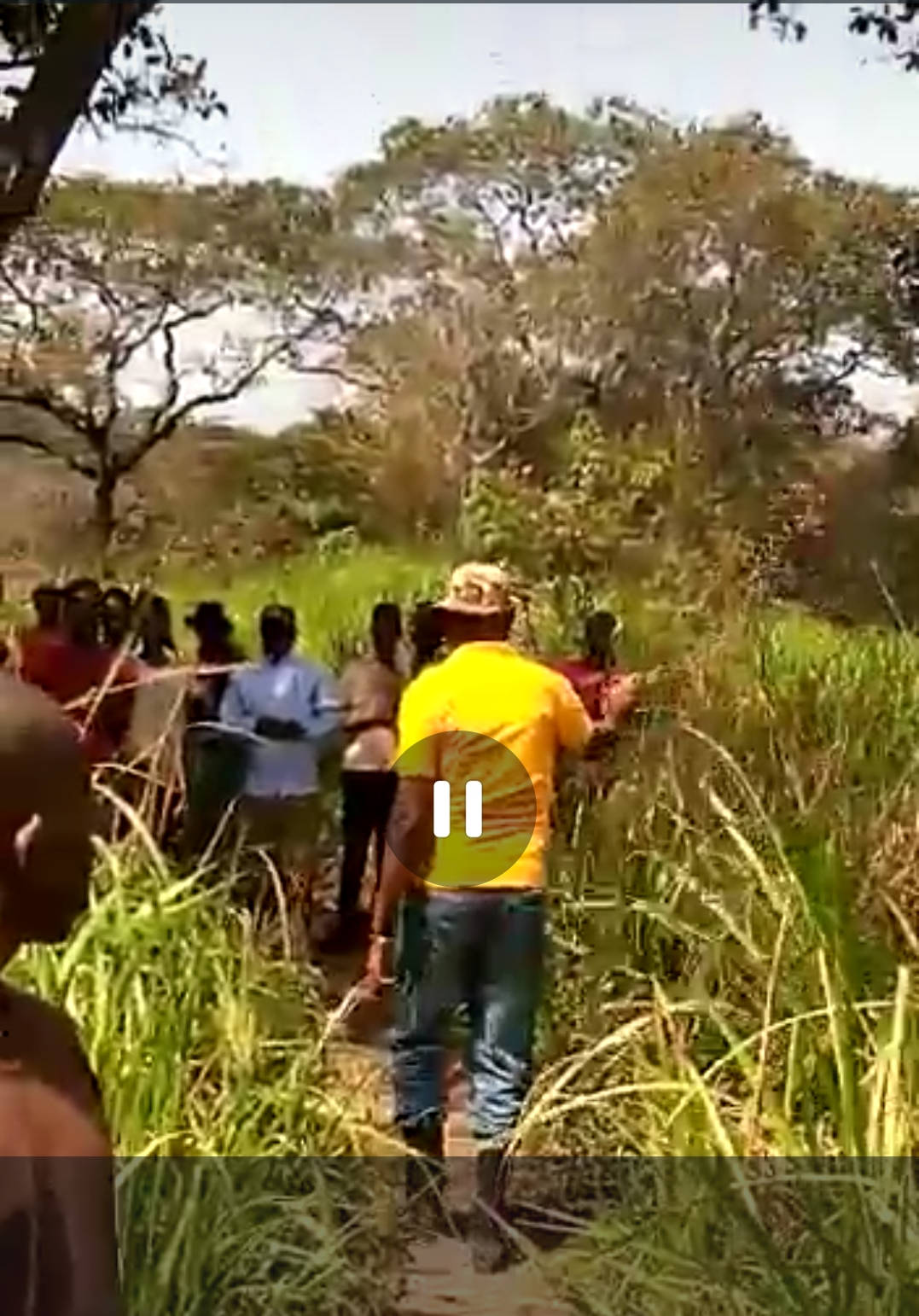

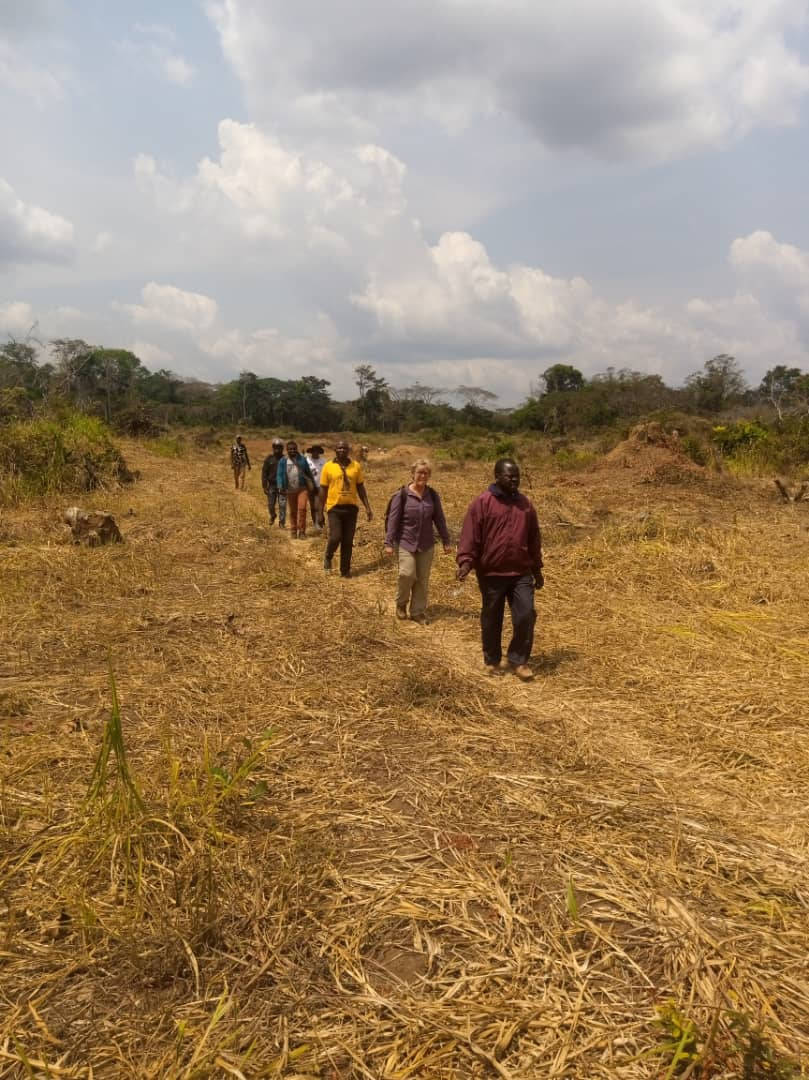
We inspected the status of the construction of the airstrip in February 2023 and decided to put this project on hold for awhile. We are looking whether it is possible to use heavy equipment to remove the last of the anthills and to level the ground. While this sounds like a simple thing to do, but because roads are either non-existent and/or in very poor condition in DR Congo, to haul a large bulldozer about 500 kms through the forest does presents a few challenges for this project.
While we will not give up on this project, it will take awhile to plan the logistics and to secure additional funds so we can complete the remainder of this work.
Help us build an airstrip for emergency evacuations, wildlife Surveillance, and transporting equipment and people safely. Please enter your contribution below. For Australian residents your donation $2 and over is tax deductable. This is what your contribution will give. All amounts are in AUD.
RainShine Australia uses Stripe a secure payment system. For more information: https://www.stripe.com/